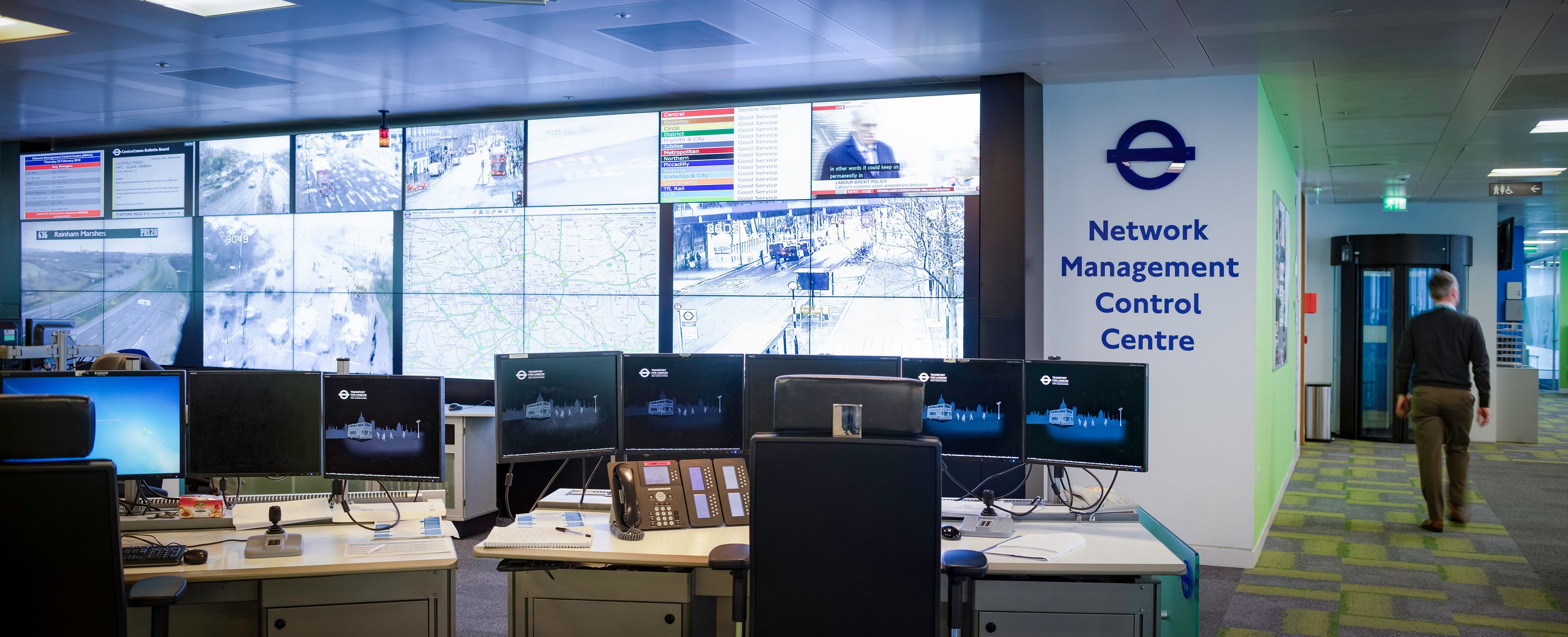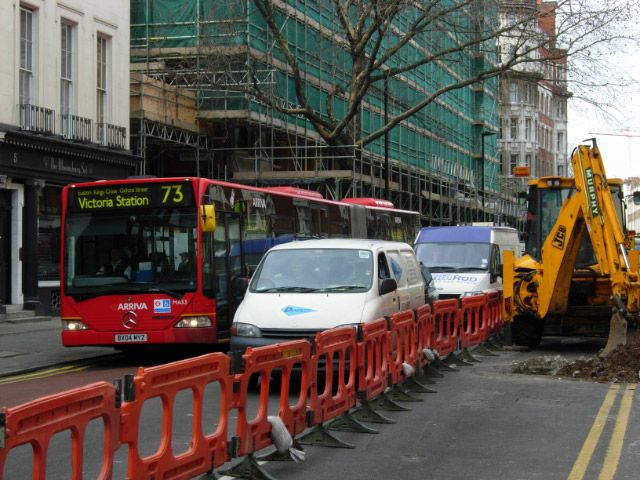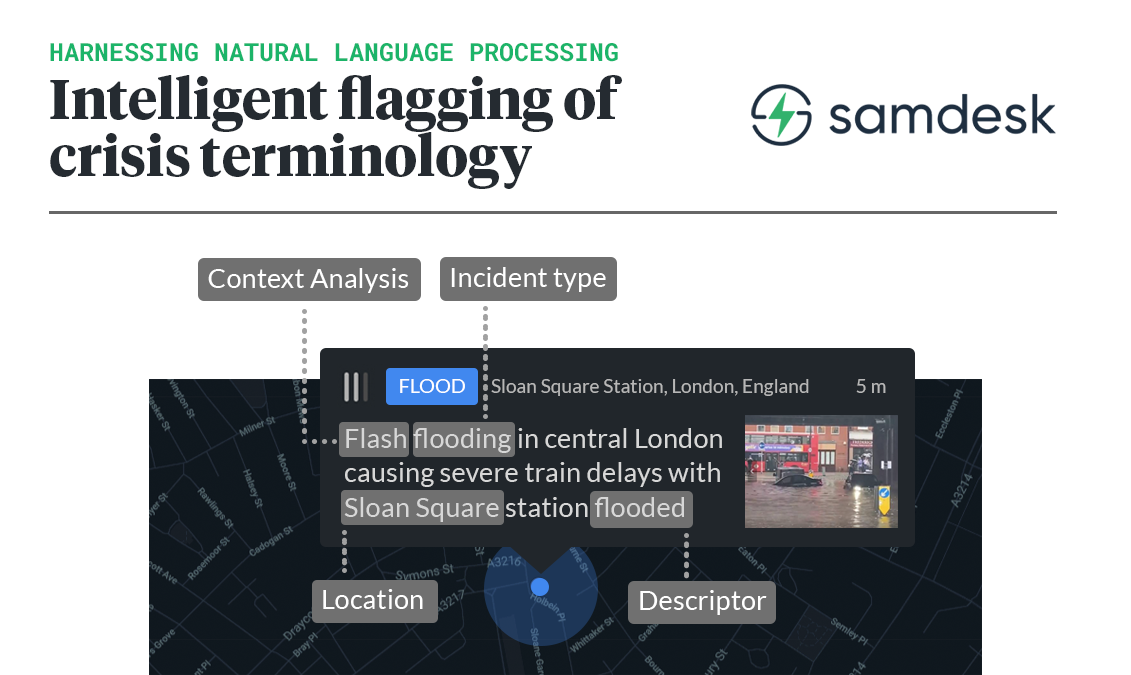Transport for London (TfL) is set to start using innovative new technology from two UK start-ups. The aim is to reduce danger and disruption caused by roadworks and unplanned incidents on the UK capital’s road network. The technology will make a real difference to keeping people safe, helping to cut congestion and cleaning up London’s air.
In 2019, TfL launched an innovation challenge called RoadLab, which called on the UK’s leading innovators to develop technology that could make roadworks in the capital safer, smarter and more accessible. Nine innovators were chosen to go through to a 10-week programme, where their proposed technology was trialled and developed with the support of London’s major utility companies and London Councils.
Following a procurement process, TfL has now awarded contracts to samdesk and Immense for technology that will make the management of London’s road network safer, smarter and more efficient.
Immense uses innovative simulation technology that models roadworks to understand their impact on a road network before they take place. The software can provide TfL and utilities staff with information on predicted congestion impacts, increases in emissions and the safety impacts of planned roadworks. This information can then be used to inform people in London about predicted impacts to their intended journey.

Software from samdesk leverages artificial intelligence and real-time anonymized social media data to detect emerging disruptions, This gives TfL staff a faster and more comprehensive insight into incidents unfolding across the transport network. Having early access to information about incidents across London will help TfL to respond to them more quickly.
Ensuring that people and goods can move around the capital’s road network safely and efficiently is vital to a healthy and sustainable recovery from COVID-19. TfL is now working with Immense and samdesk to prepare the new technology for use on the capital’s road network and will start to use software from both companies in the coming months.
The programme was funded by TfL’s Lane Rental scheme, which charges roadworks companies for digging up London’s busiest roads at times that cause the most disruption to people’s journeys. This money is then invested in tackling congestion and minimizing the impact of roadworks and has saved £100m (US$139,) in lost travel time since the scheme started.

Safe, smart and sustainable
TfL is ready to continue working with innovative companies across the UK to keep the capital moving, working and growing. Other innovation programmes that TfL has worked on recently include a challenge to tackle bus driver fatigue and a programme to modernize TfL’s management of its vast commercial property estate. Innovators can register their details with TfL on its database to share information about their work and programmes.
“London’s road network plays an absolutely vital role in keeping the capital moving and we’re always looking for innovative ways of making our streets safer, smarter and more sustainable,” says Rikesh Shah, TfL’s Head of Commercial Innovation. “Our RoadLab programme has shown how the public and private sector can work together to create smart solutions to London’s transport problems. The technology developed by both samdesk and Immense builds on the great results we achieved following the research and development work with during RoadLab. This delivered nine innovative solutions in 10 weeks, an astounding effort for both the public and private sector, which we hope to build on in future innovation challenges.”
“Immense is delighted to provide TfL with access to our simulation platform,” says Robin North, Immense CEO. “We believe our capability will help to assess impacts and inform better roadwork planning across the TfL network and in turn, contribute to keeping London moving. We have been pleased to participate in the Roadlab programme alongside other innovative companies and look forward to continuing to work with TfL and partners over the coming years.”

“We’re excited to support and learn from TfL in their mission to keep Londoners moving while making it a safer, smarter and more sustainable city,” says James Neufeld, CEO, samdesk. “By applying our AI platform, TfL will spot disruptive events that impede the flow and safety of travellers minutes to hours faster. In the time that TfL has been piloting our platform, we’ve already seen strong numerical results. From fast rerouting of buses due to building fires to spotting platform overcrowding, our partnership is already making London a more efficient and safer city.”
The London RoadLab programme was the first time TfL had used an innovation partnership procedure, a new procurement process to work with the private sector that enables TfL to find ways of tackling some of the biggest challenges facing the capital. This procedure was developed to make it easier for the public sector to encourage innovation from start-ups or large companies without hampering competition or transparency. TfL worked closely with Plexal, an innovation centre based in London’s Olympic Park, to develop the programme. Plexal is an accelerator that supports start-ups to solve problems and challenges and the centre hosted the teams working on the programme.
“London RoadLab was an exciting way for a transport body to engage with the start-up ecosystem and procure innovation,” comments Andrew Roughan, managing director at Plexal. “Tech start-ups are capable of solving the big challenges facing society and improving our transport network. What Plexal did with London RoadLab was connect those start-ups with TfL to co-create and adapt technology to specific challenge areas, and create the conditions for this to work effectively. We’re pleased to see two cohort members being awarded contracts with TfL. London RoadLab, and TfL’s commitment to open collaboration, is a fantastic blueprint for how cities and the public sector more broadly can engage with start-ups to source innovation.”
TfL’s subsequent FreightLab challenge looked for solutions that would make goods movements in the capital safer, cleaner and more efficient, working with industry partners including Royal Mail, John Lewis and Thames Water to co-develop and trial their products. Trials for the products developed in FreightLab are ongoing.





